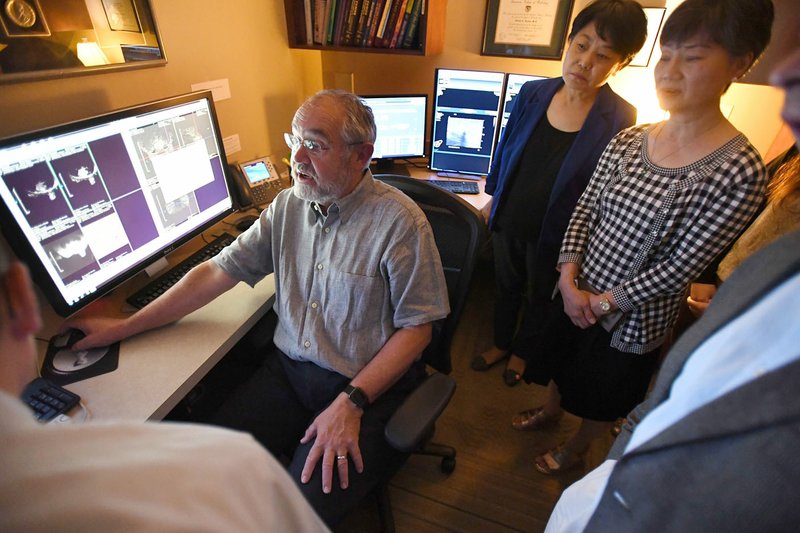FAYETTEVILLE -- A group of doctors and other medical professionals from China visited a health center Thursday to learn how to better detect breast cancer. The disease is on the rise in China.
"The reason they came here is because they want to change the way breast cancer is managed in China," said Dr. Steven Harms, a radiologist at the Breast Center on Sunbridge Drive.
Harms and other staff members demonstrated diagnostic tools to the visitors. One of the main reasons they came to Fayetteville was to learn about a breast magnetic resonance imaging machine.
The machine detects breast cancer better than a mammogram or a full-body MRI, Harms said. All of the radio waves are received and transmitted through the breasts so it's more optimized, he said.
Harms helped develop the machine, which has been in use since 2004. The Breast Center is a Medical Associates of Northwest Arkansas clinic.
"It's designed with only breast imaging in mind," Harms said.
Boston-based Aurora Healthcare US Corp. makes the machines. Olivia Ho Cheng, the company's chief executive officer, said women in China are being diagnosed with breast cancer 10 years younger than women in the United States.
The incidence of breast cancer among Chinese women is increasing twice as fast as the global rate, according to a 2018 study by the World Health Organization. Breast cancer is the most frequently diagnosed cancer and the fifth leading cause of cancer-related deaths in China.
Dr. Zhang Yang, one of the visiting surgeons, said the machines could be helpful in detecting breast cancer early.
Detecting breast cancer in Chinese women can be particularly challenging, Cheng said. Chinese women generally have smaller breasts, and people with smaller breasts tend to have denser breast tissue and less fat. That makes it more difficult to see a tumor on an MRI and also makes performing mammograms more difficult, she said.
Cheng said there are seven breast MRI machines in China, a country with about 1.4 billion people.
NW News on 07/12/2019
